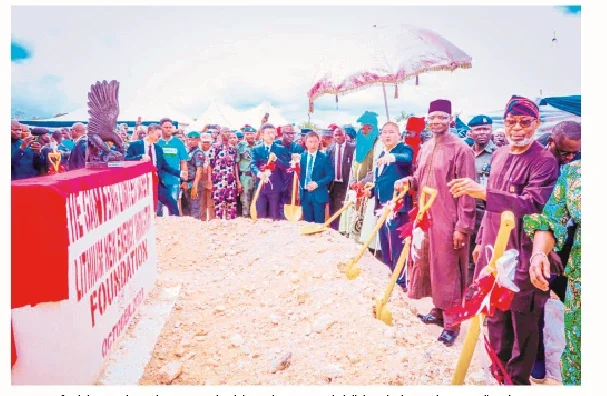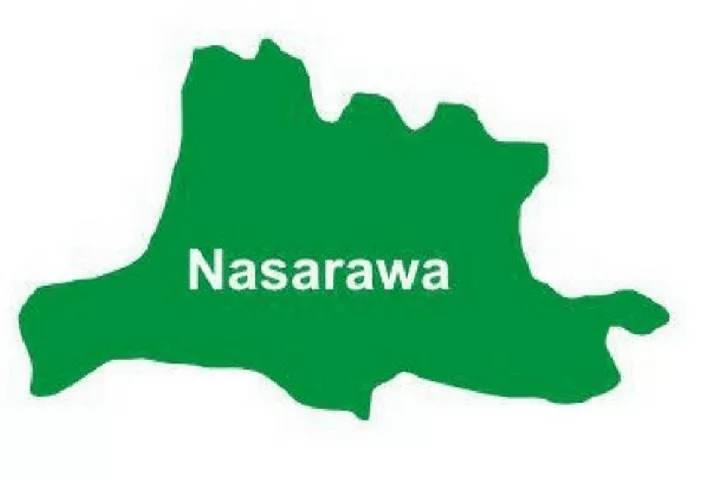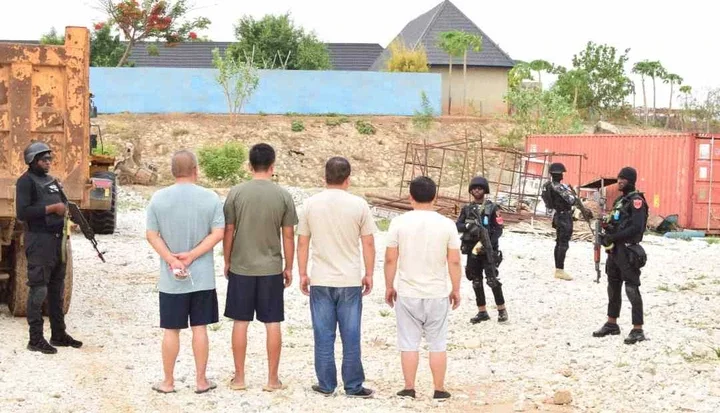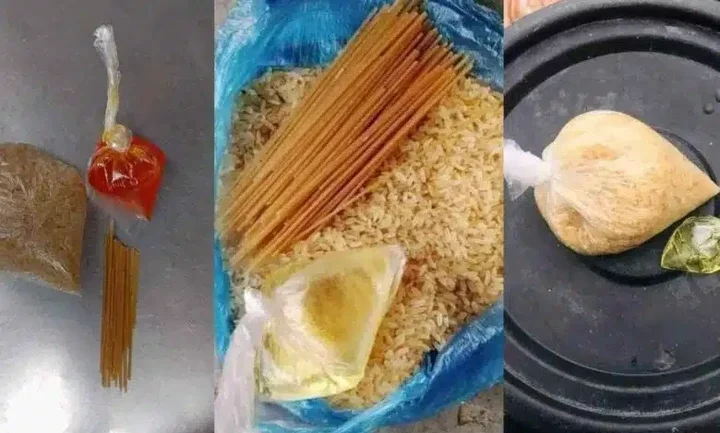Katsina State government recently launched its first batch of Community Watch Corps. GODWIN ENNA examines the security measures being put in place by the new administration and reports the historic milestone in the state

In the last few years there has been a mad rush for Nasarawa State's many mineral deposits which earned the state the tag; "Home of Solid Minerals". The development has seen some big names in the corporate world establishing presence in the state and tapping the minerals.
Some of the big names that have established industries in the state include Olam Nigeria Ltd, Dangote Sugar Refinery, Azama Nigeria Ltd, Flour Mills Nigeria, Bionas Group, ABS Blueprint Consortium, Prime Global, Beacon Energy, Green Sahara, Diamond Stripes, Barlow & Barrow International Nigeria Ltd, Green and Energy Limited.
However, among the mineral deposits in the state, lithium, in the last few months, has somehow become the beautiful bride, with investors sinking hundreds of millions of hard currencies into its exploration.
The scramble for lithium, a highly reactive metal used in energy-dense rechargeable batteries used in cell phones, electric vehicles and grid storage, according to a senior policy and research analyst with Nextier Group, Mr Charles Asiegbu, may not be unconnected with the growing interest in renewable energy by governments across the world as the need to phase out fossil fuel vehicles in favour of emission-free electric cars intensifies.
According to him, the cost per tonne of lithium rose from £4,600 in 2020 to over £61,000 in 2022.
"Lithium is one of the most attractive and most expensive minerals being traded in the world market today. In fact, it has risen over 10 times its price today," Governor Abdullahi Sule also confirmed.
Quoting a World Bank report, Mr Asiegbu predicted that the demand for essential metals such as lithium and cobalt would increase by roughly 500 per cent by 2050, even as he said that the global electric vehicle market alone was projected to reach £646.23bn by 2030.
He said, "Most of the world's lithium is produced in four countries: Australia (the world's largest producer), Chile, Argentina and China. However, these countries do not produce enough to fulfil the expanding worldwide demand. As a result, the search for lithium has moved to Africa and is already being extensively mined in Zimbabwe (Africa's largest producer), Namibia, the Democratic Republic of the Congo, Mali and Ghana.
"Today, the quest for lithium is gaining traction in Nigeria, with competition becoming increasingly fierce. In Nigeria, lithium is currently mined in Nasarawa, Kogi, Kwara, Ekiti and Cross River states. In 2018, Kian Smith Trade & Co, a Nigerian mining company, announced the discovery of 15,000 tonnes of commercial lithium in Nigeria."
Experts say among the states in the North Central with lithium deposits, Nasarawa tops the chart. This was equally confirmed by Gov Sule at a forum recently when he said the state indeed had the highest commercial quantity of the most sought-after mineral.
The state, Gov Sule also said, had the highest number of investors working to establish presence over the minerals. Already, three companies have indicated interest and are presently working to prospect over 25,000 tonnes per day of lithium in two LGAs: Nasarawa and Karu.
Recently, the federal government, through the Minister of Solid Minerals Development, Dele Alake, performed a groundbreaking ceremony for the establishment of a $250m factory by a Chinese company, Ganfeng Lithium Mining Company, in Endo village in Udege Development Area in Nasarawa LGA.
"Now, we have three companies that have come forward. One is called Landmark Lithium Mining Company, which is already getting ready to commission its factory that would be processing 3,000 tonnes of lithium a day. This will be done in December.
"Another company called RSIN has already begun the construction of its factory and will be commissioning by March, next year in Karshi. It is billed to process 1,500 tonnes and then expand to another 3,000, making it 4,500 metric tonnes by the end of next year.
"Just last week, the minister and I were in a village called Endo, where Ganfeng Lithium Mining Company performed the groundbreaking for its $250m factory that will process another 18,000 metric tonnes per day," Governor Sule explained.
The Gafend initiative alone, according to its President, Mr Pan Quan, will provide jobs to more than 15,000 people when the factory becomes operational, while building massive infrastructure across the benefiting communities, among other social responsibilities.
"The plant will provide directly 2,500 jobs and indirectly more than 15,000 jobs. After the completion of the factory, it would boost the market economy and impact skills to young people. The investment would attract more Chinese investors into the country and Nasarawa State in particular. Infrastructure will be improved. The community will be more energetic, and every community member will work with us to create a win-win situation," Mr Quan stated.
At the Ganfeng Lithium Mining Company groundbreaking ceremony, Mr Alake lauded the leadership of the organisation for taking the initiative to establish a factory in the country instead of exporting the raw materials abroad as had been the vogue in the past. He also commended Gov Sule for providing the enabling environment to motivate investors to establish factories in the state.
He said the federal government would henceforth only give license to mining companies that would add local value to the resources that were abound in the country, even as he urged mining companies currently exploring and exporting raw minerals to review their business strategies and follow the path of economic recovery going on in Nasarawa State.
"I want to emphasise the fact that the era of exporting raw solid minerals from Nigeria is over.
"Any company wishing to come and invest in the solid minerals sector in Nigeria henceforth must add local value. Without that, we shall no longer license any company, anybody, any institution, any corporate organisation that doesn't have local value addition as an integral factor of the execution of its project," the minister said.
For Governor Sule, the mad rush for the state's minerals by investors, especially the establishment of factories in the state, is a culmination of many years of painstaking planning and hard work anchored on industrialisation.
"God has given me the opportunity to see the realisation of my dream, so that instead of having illegal miners who are mining our products and taking them completely out of Nasarawa to somewhere else, we are now having a huge industry which is going to be processing thousands of tonnes of lithium every day," he stated.
Our correspondent further reports that before the big players arrived at the scene, clashes of interest among illegal miners resulted in security breaches, even as their activities gave environmentalists cause for concern regarding degradation.
Governor Sule had to convene a security meeting of major stakeholders, including traditional rulers, community and youth leaders in the affected areas, before the anomaly was addressed.
Experts agree that the resurgence of activities in the solid mineral's subsector would serve as a springboard for a new economic order and industrialisation of the state.
















Comments